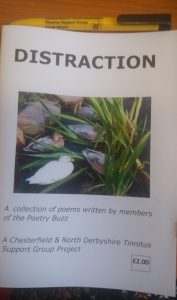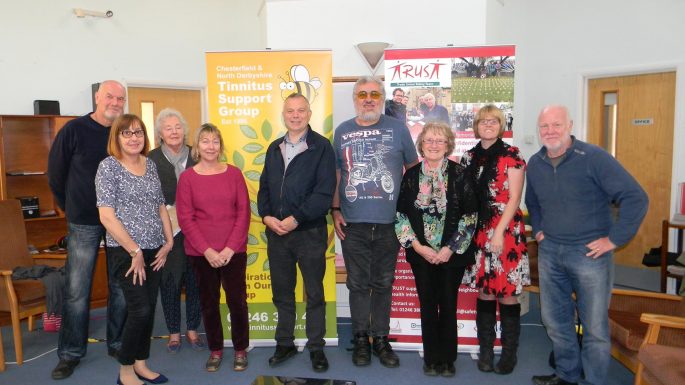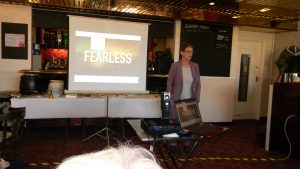I’m sure as tinnitus sufferers you probably know a bit more about the different symptoms, causes and issues than I do. All I know is that in my 7 years of practice and my father’s 17 years of experience, we have helped numerous people reduce the frequency or severity of tinnitus or even report that it has completely disappeared. Of course we know there are many reasons why people develop it and there are often many other symptoms that appear with it. As Chiropractors we don’t treat symptoms as such and so I think I better explain exactly what it is we do do….
Usually a person comes to see us because they have a specific symptom that is bothering them such as low back pain, knee pain, headaches etc. We always take a full medical history, neurological and chiropractic assessment of every person that walks in the door.
The body is controlled by the nervous system, the brain has nerve fibres that travel through the spinal cord and exit at every level of the spinal column. I sometimes describe myself like a posh electrician because I help to make sure there are no blockages to the wiring that makes your body work. The diagram shows where these nerve connections exit along the spinal cord and what areas of the body they supply.
Every cell in the body has to have communication to the brain to know how to function. The brain tells the cells what to do, but it also needs to receive information from the nerve fibres to know what is going on. For example; if you need to move your wrist, your brain receives information all the time from the tissuesaround the joint and the joint capsule about where they are in space (proprioceptive nerve fibres) and what’s going on, this happens without you being aware of it. The information travels from the wrist through the elbow, the shoulder, up into the spinal cord in the neck and into the brain and back again. If I damage my wrist, elbow, shoulder, neck or brain, that’s going to change the way the body moves that area or the muscles it can make fire. I might notice that I can’t grip so well, that things seem particularly heavy or I might not notice anything different until because I’m using the muscles incorrectly, I start to damage them and feel pain. Tinnitus essentially is the nerve fibres in the ear being triggered as though they are responding to noise and telling the brain that there is sound, even when there isn’t. So what can cause certain nerve fibres to fire off?
There are three main things that can impede the function of normal nerve communication and so proper functioning of the body, they are:
Physical Stress: so you can have a fall, you injure yourself, the body stops certain muscles and joints from moving while they heal and in the meantime you recruit different structures to move you, maybe in time damaging them and leading to symptoms. There can be changes in function before you notice and before you may feel symptoms.
We know that there are certain nerves that supply the ear and control its function, they exit from the top of the cervical spine, so if there is some problem with the joints, muscle and soft tissue in this area it can lead to nerve fibres firing off because they’ve been stimulated by damage, inflammation or abnormal movement, this can lead to symptoms, one of which may be tinnitus. It is common not to have any symptoms in the neck with only tinnitus noticed. That is why we as chiropractors look at function; do the joints function properly in their movement? If they don’t then there is a problem.
Additionally the functioning of the jaw can have an effect on the ear, simply because of its proximity and its relationship with the surrounding musculature. That is why some tinnitus sufferers may also notice their jaw clicks, pops or locks. Chiropractors can also look at the functioning of the jaw, both the joint and the musculature and help correct this.
Chemical stress: Are you eating the right foods for your body to repair, maintain and produce the chemicals to keep you working. Bacteria, viruses and chemicals in the environment also cause changes to your body that affect its function.
Did your symptoms start after an illness or infection? As chiropractors, not only can we check to see whether there is any structural issue that may have aggravated the problem and help that, for example; a kinked Eustachian tube, a problem with how the jaw moves or cervical joint issues which affect how well the ear drains. We can also talk to you about supplements and diet which may help your immune system if you feel you’re prone to infections.
Are you eating the right foods for your body to heal and repair? We know that a lack of certain essential minerals or vitamins can impede nerve function and cause chemical changes in the body.
That’s why Vitamin B12 and zinc is sometimes recommended for sufferers.
Emotional Stress: I know that when we feel tired, down, hungry or generally stressed, symptoms can appear. The problem is probably there all the time but when our bodies are not coping very well we produce more stress chemicals and our bodies become less able to cope with stress, like the additional nerve firing from an overstimulated nerve cell in the ear. Also symptoms can appear worse at night, this is simply because there is less to distract the brain, the nerves may be firing all the time and the brain can ignore it for a while but at night time it can seem worse, this is also true of people that see us because of pain.
So how can chiropractors help? Well we believe that the body is self-healing and self-regulating, we just enable the body to heal as well as it can. Of course if you have suffered long term damage to the ear, this may not resolve completely or heal but it’s always worth seeing if there is anything else that is making it worse or aggravating it. As I hope I’ve explained; diet, stress and physical problems can all contribute to the symptoms you may be suffering.
My advice, give your body a break, make it easier for it to function by drinking enough water, eating well, sleeping well and visit a chiropractor to make sure there are no additional structural issues that may be causing stress to the body.
Priscilla So Masters (Chiropractic) DC
Advanced Rated Activator doctor.
Priscilla is the owner of two practices in Matlock, Derbyshire and Bedford, Bedfordshire. She works in the Matlock Clinic and Frank, her father and Esther Kong practice in Bedford. Frank, Priscilla and Esther use the Activator technique; a hand held device which delivers a specific gentle thrust to move a joint, normalise nerve function and reduce inflammation. The activator protocol specifically determines which structures are involved and in what direction they need adjusting, so the treatment is precise, measurable and gentle.
so-healthy.co.uk






